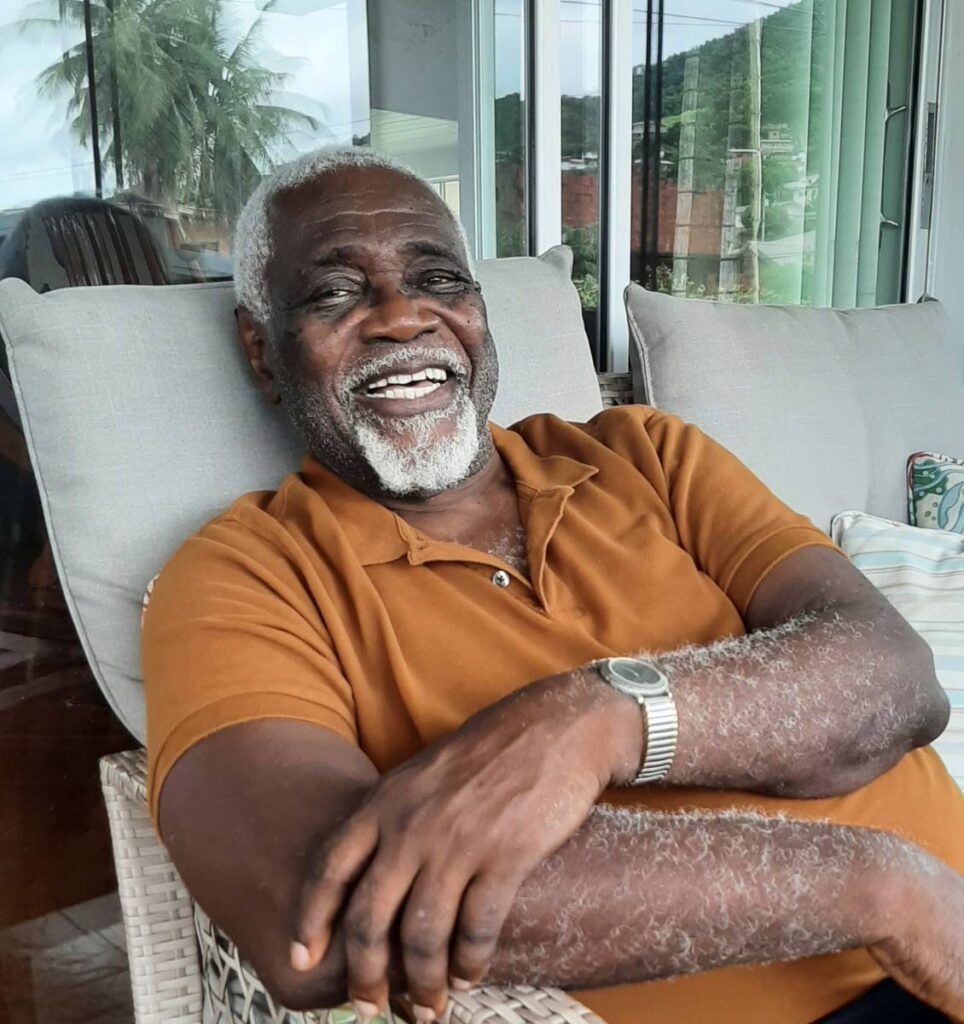Gordon Rohlehr featured at Bocas Lit Fest

One of the events featured in the Bocas Lit Fest last weekend was Gordon Rohlehr in His Own Words. Rohlehr, who was born in Guyana and who lectured at UWI’s St Augustine campus for many years, was a scholar, critic, friend and mentor to many. He died on January 29.
The Bocas event included three interviews with Rohlehr: From Apocalypse to Awakenings, produced by Paula Morgan (2010); Rivers of Sound, directed by Jean Antoine-Dunne (2009); and Late Night Lime with Gordon Rohlehr and David Rudder (1990) from the Banyan archive.
This is Anu Lakhan’s introduction to the programme.
Gordon Rohlehr in his own words; that’s really the best we can do right now. Some of us were lucky enough to hear his words in his own time and space and to be taught by him. Some of us went to UWI specifically so we could be taught by him.
In the Banyan interview, Tony Hall asks Prof Rohlehr to talk about “best books,” to give a kind of greatest-hits sort of list. From one sentence to the next, he mentions Wuthering Heights and Palace of the Peacock. He moves seamlessly from Emily Bronte to Wilson Harris. From the drear Yorkshire moors to the darker Guyanese landscape.
That is Gordon – not bleak and unfathomable – but seemingly infinite in the range of narratives, styles and cultures he could consider in one breath, in one question.
He was a man of many words, possibly by inclination, but definitely by necessity. There was so much he had to tell us and teach us.
I was his student and then a sort of human barnacle. I couldn’t let him go. Now, I feel intellectually widowed.
I should be orphaned, but Gordon didn’t allow his students to remain children forever. So I’ve ramped myself up to widowhood. Like most of us, like many of us, like some of us. It still comes as a shock to me that everyone in the world does not know Gordon Rohlehr, and of those who do, not all of them knew – not all of them understood – what he offered. I’m still struggling with a disgraceful jealousy of the people who knew him from the start of his career, so how can I begin to understand people who had a chance to know him, but didn’t?
“In his own words.” I said this was the best we could do now, and I mean that, but what I’m still not sure about is if it will always be like this. It’s important for us to listen and look, to hear and see him as he was because that may be the beginning of our ability to make a plan to Rohlehr-ise teaching. For a long time we will continue to talk about the things he taught us. But at some point I believe we will be able to do more than replay our memories of him – I really do think we can learn to teach like him.
I don’t imagine any of us – least of all me – will develop that compelling voice or that storyteller charm. Or that we will come to convey entire statements with nothing more than a shrug. (He had very expressive shoulders.) To teach like Gordon, whether we are teaching others or ourselves, requires us to try to think like him. And “like” him can be no easy thing. His was the most enviable mind I’ve ever encountered.
I want us to consider what it would mean to teach like him, because it is teaching that made him godlike. We can read the books. We can absorb the books. We can begin to feel the weight of what he was talking about when he talked about calypso and soca. About politics and picong. About literature and our lives as beings of the Caribbean. About being here.
But no matter how much we read, we must come back to the business of teaching. Maybe it was an idea you could roll around in your head a while aback, but now I think it is essential. Because we’ve never had more access to information and less ability to hold on to it, to parse it, to interrogate it, to connect it piece by piece to other blocks of knowledge. Gordon knew how to do that, and it was so fundamental to who he was that teaching was a natural part of everything he did.
He didn’t need to be in a classroom. Classrooms grew up around him. If you went to hear him speak somewhere, or observe him as part of a panel, you could see in the audience the way people started to behave as if they were at school. Nodding as if they understood. Whispering to the person next to them.
And trying to teach like him is only the beginning. We must teach the generations to come about him. We teach Walcott and Selvon and Brathwaite, and from their work did we not learn much? So in the same way, we need to take his books and essays and interviews off our personal shelves and use them to show that it is only through the most painstaking analysis and the most precise deep-reading that we can arrive at the place where understanding meets answers. Answers about who we are and how we will survive being ourselves.
Gordon will always be missed by those for whom these questions are important.
But for now we still have the books, the stories, the prophecies, in his words, in his voice.

Comments
"Gordon Rohlehr featured at Bocas Lit Fest"